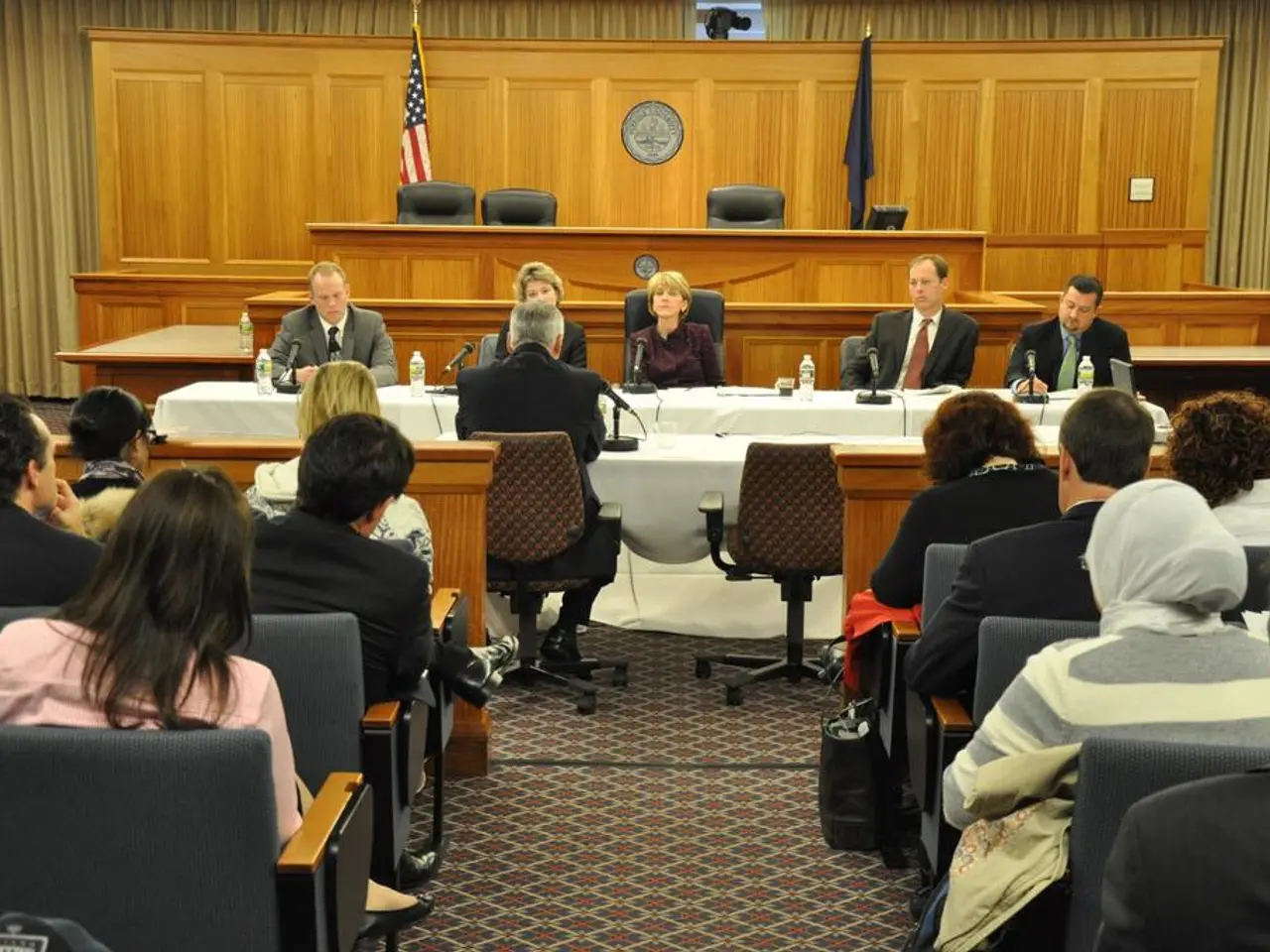GE Appliances Shifting Production of Washing Machines from China to Kentucky: Unexpected Manufacturing Move
Manufacturing Shift: GE Appliances Doubles Down on U.S. Production
President Trump's tariffs have taken a toll on various goods, but washing machines have been a significant target. On Thursday, GE Appliances announced a half-billion-dollar investment to ramp up production of these products in the U.S. This move, however, isn't solely a response to the tariffs, according to the company's CEO - they served as an accelerant.
GE Appliances will move some production from China to their massive industrial park and headquarters in Louisville, Kentucky, where they already produce washers and dryers. This move includes more than a dozen front-load washer models, aiming to complete by 2027 and adding 800 jobs to the 8,000-person campus.
The decision to reshore production wasn't solely driven by tariffs, but they did play a role in fast-tracking the plans. According to CEO Kevin Nolan, the high-tariff environment made the investment return more lucrative, encouraging the company to speed up the process.
Trade policy uncertainty has reached a fever pitch as the July 9 tariffs deadline nears. This uncertainty, added to the advantages presented by a domestic workforce and quicker delivery times, makes the payback for these investments even greater, leading to a faster implementation of plans.
In recent months, the dramatic shifts in U.S. trade policy and the Trump administration's tumultuous tariff rates have cast a long shadow over manufacturers such as GE Appliances. In response, the company has doubled down on its commitment to US manufacturing, investing $3.5 billion in its U.S. facilities over the past decade.
Expanding tariffs this week now include consumer appliances such as dryers and washing machines. The current tariff rate on Chinese exports is a minimum of 30%, but it has soared as high as 145% in recent months.
This reshoring effort follows similar moves made by GE Appliances in recent years. Prioritizing domestic manufacturing isn't a new strategy for the company, but the trade policy serves as a catalyst for these decisions. The emergence and threat of tariffs are also influencing future decisions, as the company plans to reshore other components and parts.
Economists and supply chain experts have questioned the effectiveness of broad-based tariffs in reviving the U.S. manufacturing industry. However, GE Appliances highlights that strategic, long-term investments are necessary, irrespective of trade policies.
The half-billion-dollar investment will enable GE Appliances to bring over more than 15 models of front-load washing machines, including a washer-dryer combo, to Louisville's Appliance Park. This expansion is expected to heavily feature automation, including robotics, automated guided vehicles, and autonomous mobile robots, boosting the company's efficiency and employee upskilling opportunities.
The manufacturing revival faces difficulties in the short term, with profound uncertainty about tariffs hindering action until clarity is achieved. Companies that can announce or make moves now likely have existing capacity in place. Moreover, finding a sufficient supply of skilled workers will be a long-term challenge for the industry, subject to increased attention and addressal at the national level.
The business decision by GE Appliances to invest half a billion dollars in U.S. production isn't solely linked to tariffs, but the economic environment created by them has made the investment more profitable, accelerating the company's plans. Moreover, the company's expansion in Louisville, Kentucky, involving the production of washing machines and the addition of 800 jobs, is also influencing its future plans, as it considers reshoring other components and parts, even in the sports of weather, the uncertain climate could affect the supply chain.







